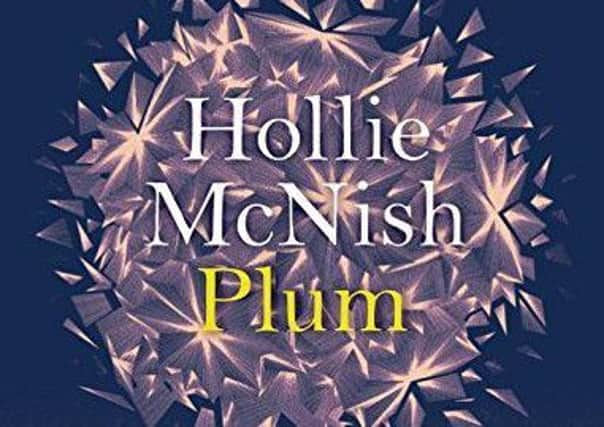Book review: Plum, by Hollie McNish


When Hollie McNish’s last book, Nobody Told Me – a breathless, searingly-honest, 450-page dash from pregnancy to motherhood, written in a combination of poetry and prose – was announced as the winner of the 2016 Ted Hughes Award, a few eyebrows in the literary establishment will doubtless have been raised. The dons at the donnish end of the poetry spectrum have long since become accustomed to seeing their finely-wrought and ingeniously-allusive stanzas overlooked in favour of more visceral work, either freshly arrived from the spoken word scene or influenced by it. But even by the standards of the defiantly lawless world of performance poetry, McNish, the English-raised daughter of Scottish parents, must seem – to some, at least – like a bewildering law unto herself.
One review of Nobody Told Me simply stated that “some of the poems are not good”. McNish herself freely admitted that a few of those poems were “far too long and still uncut.” It’s not that she doesn’t care about things like scansion and simile; more that, in her personal list of aesthetic priorities, immediacy and honesty matter more. Nobody Told Me may have been rough around the edges, but its straight-talking nature made reading it the closest most male readers will ever get to experiencing pregnancy and childbirth. Similarly, in her new collection, Plum, she continues to let it all hang out in fearless and often amusing style.
Advertisement
Hide AdPerhaps the boldest thing McNish does in this latest work is to throw a number of poems by her younger self into the mix. Most mature poets would be mortified by the idea of such naïve juvenilia ever finding its way into the public domain, but for McNish it’s fair game. That said, she’s not merely playing her earlier work for laughs (although once or twice she can’t help herself). Often, she’ll put an early poem alongside a current one on a similar theme, allowing the two to speak to each other across the years, as with her poems ‘God’, written at age 10, and ‘Midnight Mass’, written at age 30. The former is something you could imagine Spike Milligan including in his alternative Bible: “God is all forgiving / He only wishes well. / But if he Doesn’t Like You / I’m afraid you burn in hell.” The latter, meanwhile, is a more sober reflection on the thought processes of a ten-year-old girl sitting in church, convinced she’s doomed to go to the Other Place: “i wondered sitting sweating / what was worse - / knowing i was going / - or showing everybody else.”
A case could be made that much of the rest of the book is an assault on the ways in which our society still contrives to foster such feelings of secret shame. In ‘An Unnecessary Cup Size’ McNish revisits her embarrassment at not yet needing a bra when other girls in her class did; in ‘Volunteering in a Cambridge Bookshop’ she processes her anger at a manager whose repeated groping she tolerated because she lacked the confidence to do anything about it; in ‘extract from PMT’ she reflects on the taboos that still surround menstruation; and in various poems she critiques the English-speaking world’s inexplicable inability to utter the word “vulva” in public. This is done most effectively in ‘Voldemort’, in which she first invokes Albus Dumbledore’s wise advice to Hary Potter – “Always use the proper name for things. Fear of a name increases fear of the thing itself” – and then recreates a conversation at the school gates in which one mum’s tale of her little boy “fiddling with his willy” gets big laughs, but another mother’s subsequent story of her daughter, “hands always down her pants,” leaves everyone feeling awkward.
Much of what McNish has to say urgently needs saying; and if form follows function in her poems, well, that’s as it should be.
Plum is published by Picador Poetry, £9.99